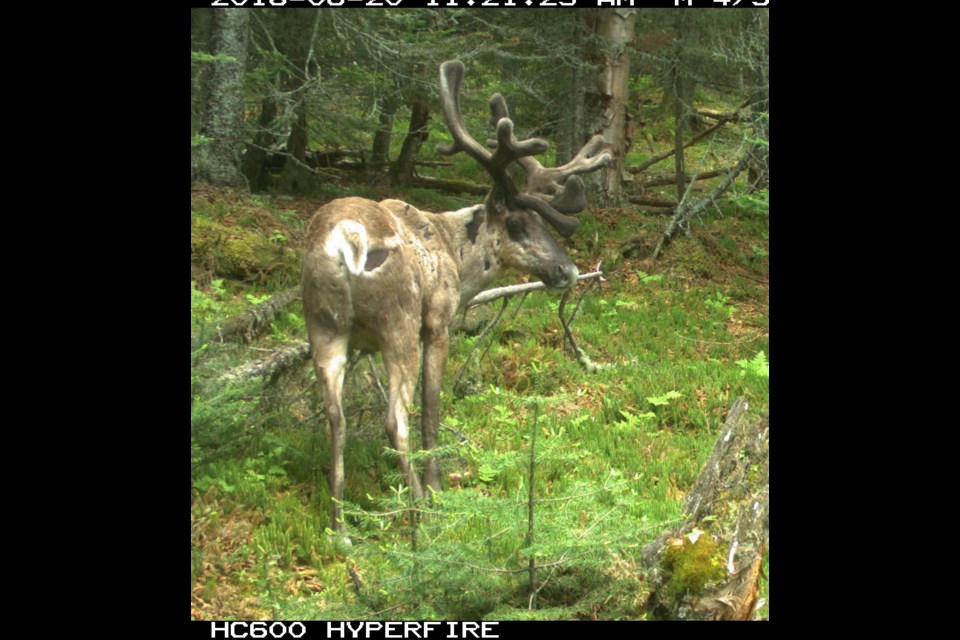TERRACE BAY, Ont. — Nine woodland caribou relocated from Lake Superior's Michipicoten Island to the Slate Islands in 2018 not only survived, but are reproducing in their new home.
Caribou are listed as a species at risk in Ontario.
The Ministry of Natural Resources and Forestry moved the animals to the Slates, near Terrace Bay, because the caribou herd on Michipicoten was being killed off by wolves.
For the past two and a half years, the ministry has monitored the caribous' progress with remote tracking equipment and trail cameras.
"They're doing fine as far as we can tell," MNRF research scientist Art Rodgers says.
Collars with transmitters were placed on the eight cows that were transferred, but not on the lone bull.
Seven cows were already pregnant at the time, and tracking data indicated that at least six had calves in 2018.
Last year, at least five of the eight apparently gave birth again.
In an interview with Tbnewswatch, Rodgers said "We don't like to go over there and have a look, because we don't want to disturb them too much. But the population is expanding."
He said scientists have not yet examined the data that's been sent this year, but he expects more calves were born this spring.
Only a few bulls remained on the islands prior to the airlift that occurred in 2018.
The herd is now believed to number as large as 30.
A key reason for the expansion is the absence of wolves so far.
A trail camera set up at the closest point between the islands and the mainland transmitted no images of the predators for the first two years.
Last winter, Rodgers said, the channel didn't appear to freeze at any point, so wolves were unable to cross from the mainland.
When MNRF staff visited the islands a few weeks ago to retrieve the SD cards from 15 trail cameras, they saw no evidence of wolves, however six months worth of images still need to be examined.
Unless something unexpected happens, next year will see a key stage in the expansion of the herd.
Rodgers said calves that were born two years ago may be mature enough to enter the breeding population this fall, and will almost certainly be so next year.
"I'm really looking forward to" it, he said.
"Now, instead of the original eight females, we'll see the calves they had also adding to the population. So even if you said, say, just 50 per cent, you're going to go to twelve breeding females producing calves. And the year after that it could be 16, and this is why you get exponential population growth."
It's estimated that there are currently about 5,000 woodland caribou in Ontario.
The animal's range is generally north of Sioux Lookout, Geraldton and Cochrane, with a few isolated populations along the shoreline and islands of Lake Superior.
Scientists say climate change has the potential to further reduce available habitat and food sources for caribou.
